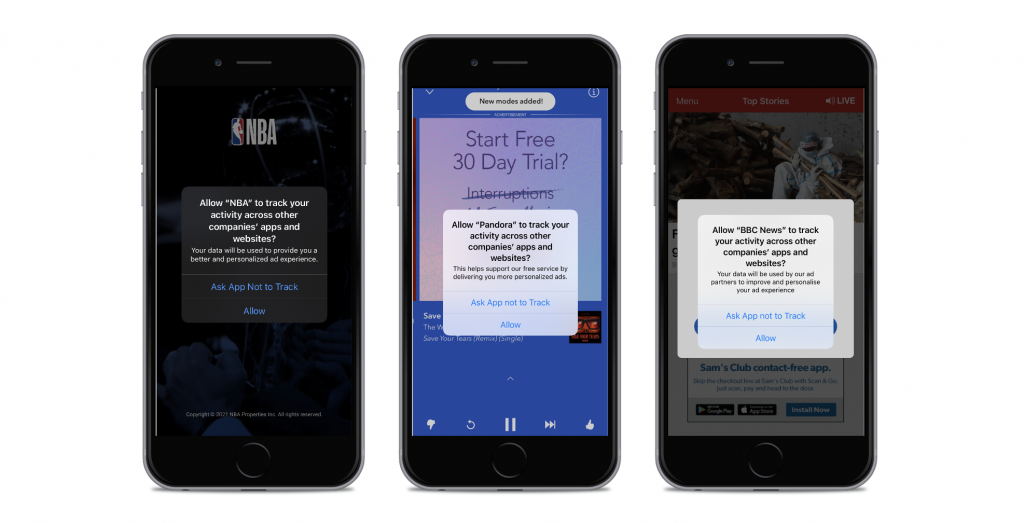
By now, you’re aware that Apple will require all apps in the App Store to offer a prompt allowing users to opt in or out of tracking. This is called App Tracking Transparency (ATT), and it is being rolled out this week to iOS 14.5 users.
Initially, many experts were predicting that 20% of users would opt in to allow tracking. However, studies conducted by various mobile measurement partners have seen percentages as high as 42%. This is a welcomed upside to many app owners, but marketers as well. It will have the largest impact on apps and app-install campaigns; however, advertisers should be aware that it will impact some of your current and future advertising initiatives. Specifically, when it comes to campaign measurement and reporting. This is especially true if you are tracking events like sign-ups or purchases on your website.
Like many other marketers, you may be worried about how this will affect you. Below are a few things to be on the lookout for as you navigate these privacy changes.
- Reduced Attribution Windows
Platforms like Snapchat and others are moving away from longer “view through” attribution windows. If your product buying cycle is longer you may have it set to 28 days or more. Over the coming weeks that may be deprecated, which will require you to set a shorter window. It’s important to note that once this shift happens it may appear that you received fewer conversions than initially reported. Ensure that you download and save campaign data before it is removed. That will ensure that you can properly assess performance. - Reduced Reporting Dimensions
You may lose the ability to report on standard location metrics like region, DMA or device for users who have opted out of tracking. If your business assesses performance by location, it will be important to take note of these changes. - Cap on Conversions Events
Platforms such as Facebook will be implementing a cap on the number of events you can track and optimize during campaigns. If you have an extensive tracking strategy it will be important to prioritize key conversion events. - Reduction in Conversion Activity
Since apps are losing some of their ability to identify individual users it will become more difficult for platforms to count conversions. In this case, they will try to use statistical modeling to fill conversion holes. However, since some of the data will be missing or partial, reporting results may not be inclusive of all the iOS14 conversions you received. This could make it appear as if your performance has dipped, which may not be the case.
What Should I Do Next?
Many platforms are making adjustments on the back end to align with ATT. That means less work for advertisers and marketers. However, you should ensure that you are taking note of platforms that have a large iPhone user base. This could be where you notice the largest impact on performance. Continue to place pixels and have an effective tracking strategy in place. This will continue to provide improved targeting, measurement and optimization.
If you’re running campaigns on platforms like Facebook/Instagram, ensure that you are taking advantage of the aggregated event measurement tool. If you’ve depended on IDFA or device targeting in the past, try to shift to email data to maintain the efficacy of your audience targeting.
All that being said, remember you will still get data from android users, individuals who opt into tracking and those who do not update their phones regularly. Performance and insight is not going away.
While it’s important to understand the impact this change could have on your business’ advertising initiatives, it’s also important to remember that digital media changes constantly. With new changes comes new possibilities. We’re used to adapting and finding the best strategies and media solutions possible. If you have any questions about a current or future media campaign, feel free to reach out. We’ll continue monitoring the progress and staying as far ahead of these changes as possible.



